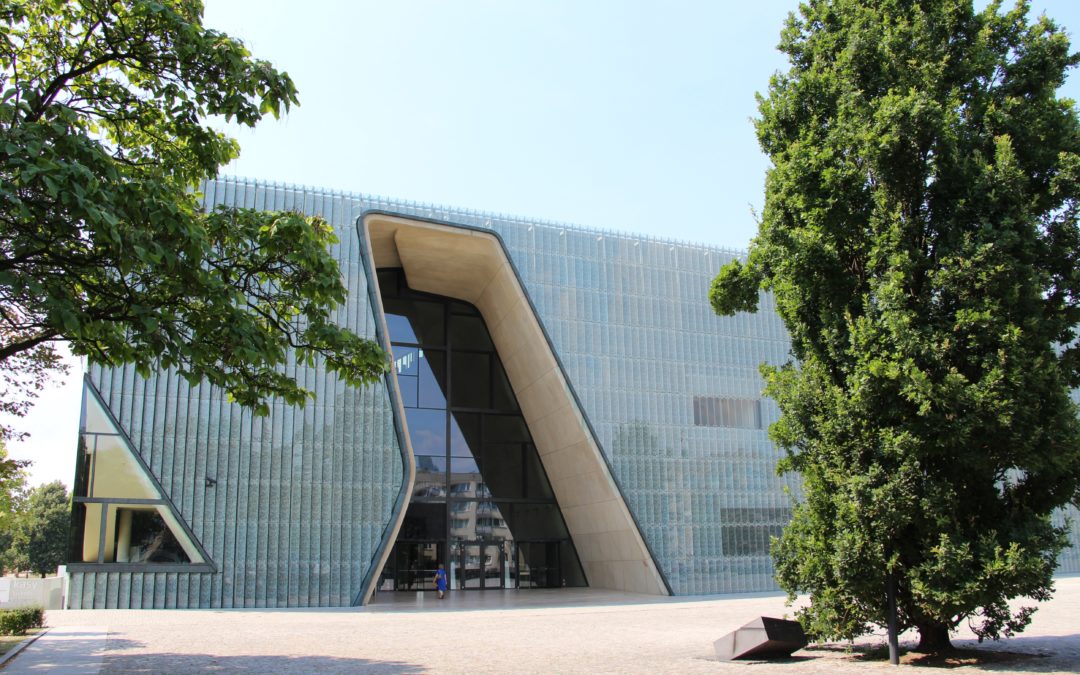By Piotr Kosiewski
This article is published in cooperation with the ideaForum of the Batory Foundation.
There is growing concern about the situation at two major public museums in Warsaw: the National Museum and POLIN Museum of the History of Polish Jews. These two separate cases both result from decisions made by Piotr Gliński, the minister of culture. More broadly, these examples also highlight the problems caused by how the current government exercises power.
The crisis at the National Museum was caused by Jerzy Miziołek, whom Gliński appointed director last November. He replaced Agnieszka Morawińska, who reformed the museum and restored its significance, but resigned in protest against what she claimed was inaction from the Ministry of Culture and National Heritage to ensure that the institution continues to function effectively.
Gliński appointed Miziołek, a professor at the University of Warsaw who has written studies on the reception of antiquity in the modern period, without a competitive recruitment process, only consultations. This is permitted by law. However, for an institution of key importance for Polish culture, with a vast collection, a multi-million zloty budget and over 400 employees, it is a rather risky path.
Miziołek received a positive appraisal from the Association of Polish Museologists. He was also backed by the museum branch of the Solidarność trade union. There were negative verdicts, too: from the Association of Art Historians and the Polish National Committee of the International Council of Museums, which drew attention to Miziołek’s limited experience running museums.
These reservations proved more than justified. Very soon, Miziołek had fallen out with the museum’s staff. Within just a few months, over 50 employees had left or been dismissed, including people who had made the institution a success. The programme was revised and serious exhibitions were replaced by hurriedly organised shows, including a presentation of digital reproductions of Leonardo da Vinci’s works that were an embarrassment to the curators. The director has also become known for taking down works that he deemed “inappropriate for viewers”. An example of “censored” work was Sztuka konsumpcyjna (Consumer Art) by Natalia LL, depicting a young girl eating a banana and a canonical piece of twentieth-century Polish art.
Polish celebrities have been posting #BananaSelfies in response to the National Museum's decision to remove an artwork showing bananas being eaten in a sexually suggestive manner.
There will be a banana-eating protest outside the museum later today https://t.co/E2xHH6AWbh
— Notes from Poland ?? (@notesfrompoland) April 29, 2019
Questionable personal decisions and a parochial view of Polish art resulted in a dispute with Solidarność. Leading organisations and experts in Poland and abroad have protested against Miziołek’s actions and there have been repeated calls to dismiss him. The ministry decided to postpone the decision until after the Polish parliamentary elections on 13 October.
The National Museum is a clear example of the chaos caused by the current government, which makes bad decisions and is incapable of going back on them (unless forced to by public opinion). To make matters worse, alongside its reluctance to admit that it made a staffing error at the National Museum, it is undermining the institution’s achievements. Gliński’s comments about the museum’s achievements before Miziołek was appointed have no basis in reality. They undermine the credibility, prestige and trust accumulated by the museum over the years.
When POLIN director Dariusz Stola’s term ended this spring, two of the museum’s co-founders, the Association of the Jewish Historical Institute of Poland and the City of Warsaw, were in favour of extending his contract. They had a strong argument: under Stola, who oversaw the opening of the museum, the institution gained international prestige, recognition and trust. POLIN became one of Warsaw’s most-visited museums, with over 670,000 people attending in 2018, more than half of them from abroad. A strong exhibition programme was created, along with discussions and conferences (the exhibition Estranged: March ’68 and its Aftermath was visited by over 116,000 people). The museum became a key centre of public debate in the Polish capital.
However, its third co-founder, the Ministry of Culture and National Heritage, refused to extend Stola’s term. A competitive hiring process for the position was announced on 27 February 2019. The committee had 15 members, 11 of whom backed Stola. The decision was published at the start of May.
“We had an agreement that the result of the competition for the museum’s director would be respected regardless of who was chosen,” said Piotr Wiślicki, head of the Association of the Jewish Historical Institute of Poland, in an interview with Polish daily Gazeta Wyborcza. However, Stola still has not been appointed. Gliński has not said whether he will respect the results of the contest. He continues to avoid clear statements. In a recent interview with TVN 24, he merely said, “I have not made a decision for now.”
The culture minister has confirmed he is refusing to approve the reappointment of the director of @polinmuseum for political reasons, and says he may never do so.
He accuses Stola of 'pursuing very aggressive politics', which 'damaged the institution' https://t.co/63on5iKzcs
— Notes from Poland ?? (@notesfrompoland) September 25, 2019
The decision on POLIN was delayed until after the elections, too. Stola’s deputy, Zygmunt Stępiński, is temporarily serving as acting director, which he can do until February 2020. The museum is functioning normally, but this sense of suspension undermines its stability.
The situation is affecting the museum’s image abroad. Unless Stola is “appointed director of the POLIN Museum, it will create serious concern and amazement among historians, museum workers and the Jewish community,” wrote the American Jewish Congress Delegation in an open letter. “This scenario can also be interpreted as detrimental to the museum itself and the group of donors; it will also naturally affect Polish-Jewish relations.” Some of POLIN’s donors have already suspended payments (a total of 1.5 million zloty in subsidies has been frozen).
These are not the only voices warning the Polish authorities that POLIN could become the next flashpoint in Polish-Jewish relations. Observers still remember Gliński’s attacks on the museum for the Estranged exhibition, which broached the subject of antisemitism. The minister criticised the museum for showing contemporary cases of antisemitism, for example quotes from the news service of the public television. The public also remembers his rather peculiar statements on why a Warsaw Ghetto Museum was being established: according to Gliński, the museum should show “800 years of love and understanding between the two nations”.
Other aspects of the Stola case have received less attention. This is an example – and not the first – of state decay. Gliński recently refused to extend the term of Monika Szewczyk, who has run the Arsenal Gallery in Białystok with great success. His argument was curious: a competitive recruitment procedure for director “is the fullest implementation of the constitutional principle of exercising public rights. It is the most transparent way of choosing the director of a cultural institution, and the one most recommended by the artistic community”.
With his continued refusal to accept the results of the recruitment process for the director of POLIN, Gliński is not only contradicting his own declarations, but also showing that, for him – a government minister and deputy prime minister – the law, rules and principles only exist formally. They are merely instruments in the hands of politicians. This type of behaviour undermines trust in the state and its institutions, which cease to be seen as a common good.
The original version of this article can be found here. Translated by Annabelle Chapman.





















